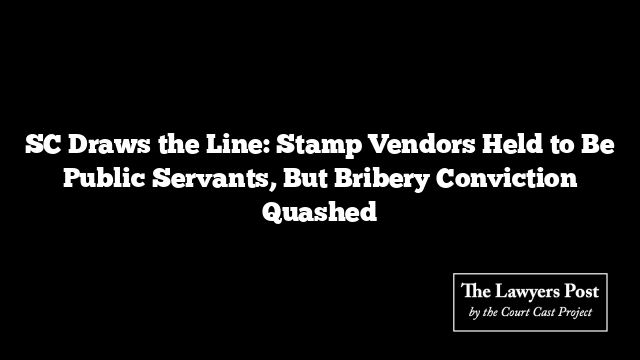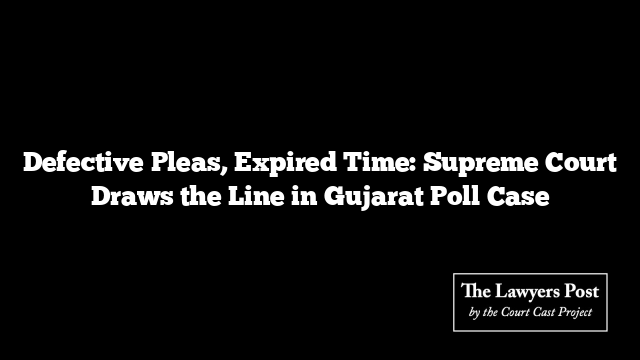In a judgment that reshapes the accountability net under the Prevention of Corruption Act, the Supreme Court has ruled that stamp vendors, though not government employees in the traditional sense, are very much “public servants” when they sell official stamp papers under a government license and at a government-fixed discount.
The verdict came in a case involving a stamp vendor accused of charging ₹2 extra for a ₹10 stamp paper. A sting by the Anti-Corruption Bureau followed, and the man was convicted by the trial court—a decision upheld by the Delhi High Court.
But the apex bench, comprising Justices JB Pardiwala and R Mahadevan, took a nuanced view. First, it cleared the air on status: stamp vendors perform a public duty and are paid—albeit indirectly—by the State. They operate under rules laid down in 1934, get a government-sanctioned discount on stamp paper procurement, and play a crucial role in the machinery of official transactions. That, said the Court, makes them public servants under Section 2(c)(i) of the PC Act.
The Court referenced earlier rulings, including the one involving deemed universities, to reinforce its point: the relationship with the government and the nature of the public duty outweigh whether the individual wears a government badge.
But while the Court agreed on the status, it didn’t find the sting operation convincing. It held that the prosecution failed to prove—beyond reasonable doubt—that the vendor actually demanded or accepted the bribe. The conviction was tossed.
The case, Aman Bhatia vs State (GNCT of Delhi), marks an important moment for anti-corruption enforcement, drawing a line that brings peripheral government-linked actors into the public servant fold, but insists that the proof of misconduct must still be airtight.





